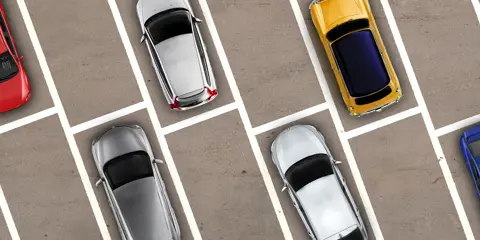-
Services
-
expand_more
Back
Services
-
-
expand_more
Back
Rates & Property
- Setting the Rates
- Revaluation and how it affects rates
- Rates Dates & Payment Options
- Changing your details
- Property Information Search
- Online Rates Payments
- Rates Rebates, Remission & Postponement
- Short-Term Visitor Accommodation
- Queenstown CBD Transport Rate for Queenstown Town Centre Properties
- Wastewater Rates for Cardrona
- Other Information
- Rates FAQs
-
-
expand_more
Back
Rubbish & Recycling
- How we recycle in the Queenstown Lakes District
- Cut your waste
- Commercial Services
- Public place litter bins and illegal dumping
- Rubbish & Recycling Collection
- Recycling Centres
- Transfer Stations
- Solid Waste Assessment
- Waste Minimisation Community Fund
- Waste Minimisation for Businesses
- Zero Waste Events
- Green and food waste
- Construction and demolition waste
-
-
expand_more
Back
Resource Consents
- Do I need a resource consent?
- Change, extend or surrender a resource consent
- Before you apply
- Apply for a resource consent
- Non-compliance & monitoring
- Notified consents
- Land Developments and Subdivisions
- Need help?
- Current resource consents
- eDocs
- FAQs
- Practice notes and guidance
-
-
expand_more
Back
Alcohol Licensing
- Alcohol Public Notices
- Find the right alcohol licence and apply
- Alcohol licence fee calculator
- Renew and/or vary your alcohol licence
- Manager's certificates
- Legal requirements for licence holders
- District Licensing Committee decisions
- ARLA annual report
- Alcohol-Free Areas In Public Places
- Have your say on alcohol licence applications
- All alcohol licensing forms
- Gambling Information
-
-
Do It Online
-
expand_more
Back
Do It Online
-
-
expand_more
Back
Registrations
- Register your Dog
- Register for a transfer or refund of dog registration fee
- Renewal for Campgrounds and Offensive Trade Registrations
- Activities in a Public Place - Registration/Application Form
- Register as a Homestay
- Register as Residential Visitor Accommodation
- Register for our public notification list
- Register to speak at Public Forum
- Register for Kerbside Collection Services
- No Spray Register
-
Community
Community
Ngā Hapori
- Manaaki
- Newcomers Guide
- Welcoming Communities
- Arts, Culture and Heritage
- Community Connect
- Citizenship Ceremonies
- Community Associations and Groups
- Community Funding
- Community Research
- Community Wellbeing
- Economic Development
- Emergency Management
- Energy Saving Tips
- Event Planning and Venues
- Māori Community
- Managing the risk of wildfire
- Population and Demand
- Summerdaze
- Tuia Programme
- Venue Hire

Community Text Alerts
Join our community text alert database and hear first hand about any issues affecting your community.
-
Recreation
Recreation
Kā mahi a te rēhia
- Queenstown Events Centre
- Wānaka Recreation Centre
- Paetara Aspiring Central
- Swim
- Learn to Swim
- Golf
- Kids' Recreation
- Sport & Rec Venues and Contacts
- Courts and Fields
- Memberships - Join Today
- Join the Sport & Rec Team
- Responsible Camping
- Parks and Walkways
- Lakes and Boating
- Mountain Biking
- Horse Riding
- Splash Café
- Physiotherapy
- Playgrounds
- School Holiday Programmes
- This Is Sport & Recreation

First Splash - Swim with Confidence
First Splash is a learn to swim programme for migrant women to increase their confidence in the water.
-
Your Council
-
expand_more
Back
Your Council
-
-
expand_more
Back
Council Documents
- Long Term Plan (LTP)
- Archived Agendas & Minutes
- Annual Plans
- Annual Reports
- Asset Management Plans
- Awarded Council Contracts
- Bylaws
- Capex Quarterly Update
- Monthly Reports
- National Policy Statement - Urban Development 2020 (NPS-UD)
- Policies
- Pre-election reports
- Queenstown Lakes Spatial Plan
- Reserve Management Plans
- Section 10A Reports
- Small Community Plans
- Strategies and Publications
- Submissions from QLDC
-
-
expand_more
Back
Council Projects
- Project Tohu
- Queenstown Town Centre Arterial
- McPhee Park Playground
- Blue-Green Network Plan
- Frankton Track Wastewater Upgrades
- Aubrey Road Wastewater Pipe Upgrades
- Luggate Water Upgrades
- Kingston Infrastructure Works
- Queenstown Town Centre Street Upgrades
- Way To Go
- Our Water Done Well
- Upper Clutha Wastewater Conveyance Scheme
- Shotover Wastewater Treatment Plant Stage 3 upgrades
- Short term approach for managing wastewater discharge
- Long term solution for Shotover Wastewater Treatment Plant
- Smart Water Meters Trial
- Environmental Monitoring System
- Lakeview Development
- Mount Iron Reserve Management Plan
- Project Manawa
- Wānaka Airport Certification
- Wānaka Airport Future Review
- Improving housing outcomes
- Queenstown Lakes Home Strategy
- Upgraded Two Mile UV Treatment Plant
- Frankton Road Watermain Upgrades
- Glenorchy Water Treatment Upgrades
- Upper Clutha Safety Improvements Programme
- Cardrona Valley Water Supply Scheme
- Schools to pool active travel route
- All-weather turf at Queenstown Events Centre
- Arthurs Point to Queenstown shared path
- 101 Ballantyne Road Masterplan
- Ballantyne Road Upgrade
- Cardrona Valley Wastewater Upgrade
- Glenorchy Reservoirs
- Frankton Campground
- Frankton Stormwater Upgrade
- Marine Parade Upgrades
- Mayoral Housing Affordability Taskforce
- Shotover Country Borefield and Treatment Plant
- Proposed Visitor Levy
- Ladies Mile Masterplan
- Recreation Ground Wastewater Pump Station and Rising Main
- Luggate Memorial Centre
- Te Kararo Queenstown Gardens
- Western Wānaka Water Supply Upgrade
- Shotover Bridge Water and Wastewater Main
- Te Tapuae Southern Corridor
- Glenorchy Marina Carpark
- Wānaka Lakefront Development Plan
- Travel Demand Management Programme
-
-
expand_more
Back
District Plan
- Operative District Plan
- Proposed District Plan
- ePlans
- National Policy Statement-Urban Development (District Plan Amendments)
- Urban Intensification Variation
- Te Pūtahi Ladies Mile Variation
- Private Plan Change 1 - The Hills Resort Zone
- Upper Clutha Landscape Schedules Variation
- Priority Area Landscape Schedules
- Special Zones Review
- District Plan Maps
- A Guide to Plan Changes
- Planning Matters - Planning & Development Newsletter
- Services
- Rates & Property
- Rubbish & Recycling
- Building Services
- Resource Consents
- Environmental Health
- Transport and Parking
- Alcohol Licensing
- Animal Control
- Airports
- Environment and Sustainability
- Water Services
- Cemeteries
- Services A - Z
- Summer Services
- CCTV - Public Use
- Permits
The resource consent process; a five-step guide
Te tukaka whakaataka; he puka arataki
Follow our 5-step process to applying for a resource consent.
-
Get in touch early!
Whether you’re seeking help from a planning professional to submit your resource consent application, or you’re making your own, QLDC planners are here to help.
If you are not too sure about resource consents and what this means for your project, you are welcome to contact the Duty Planner to help you better understand the resource consenting process. For larger or more complex developments we recommend you use our Pre-Application meeting service.
Many people decide to employ an independent planning professional to handle their resource consent application. This can be a good option for those unfamiliar with the District Plan and the resource consent process.
You can also refer to MfE's guidance on the Resource Consent application process.
Close -
To avoid delays, it's essential you provide all the relevant information we need to process your application.
You also need to think about if any person might be affected (e.g. your neighbours). It is important you include an assessment on your neighbours with an application and provide their written approval where they are affected.
Your application will need to be accompanied by a resource consent application form (Form 9), the appropriate fee, and supporting information including:
-
plans (at a convenient scale)
-
a recent Certificate of Title (within the last 3-months) and any Consent Notices and Land Covenants registered on your title
-
an assessment of the effects of your proposed activity on the surrounding environment and people, and an assessment of how your application fits with the QLDC District Plan (Assessment of Effects on the Environment (AEE))
-
if required, relevant expert reports (e.g. Landscape, Geotechnical or Transport assessments)
-
if required, a signed Affected Persons form or a signed Affected person permitted boundary form.
Close -
-
Once all the required information has been provided, a planner will prepare a report on your application. They will classify your application as one of the following:
-
Non-Notified: where Council determines the general public or any specific person is not involved, or you may have supplied a written approval from your neighbour to assist your application.
-
Limited Notified: where Council determines a specific person or persons are affected and your application must be notified to them (and you have not provided a written approval from that person or persons).
-
Publicly Notified; this is where the general public are invited to make a submission on your application.
If required, a hearing will be held before council appointed Commissioners for limited and publicly notified resource consent applications, and the council planner will prepare an additional report for any hearing.
Close -
-
Your resource consent will have conditions that you need to adhere to, and our processing planner will discuss these with you before your decision is issued.
You as the resource consent holder are responsible for complying with the conditions of the resource consent and for ensuring the project or activity is undertaken as you say it will be in your resource consent application.
For more information about monitoring see our monitoring page.
For all monitoring enquiries please contact our resource consent monitoring and enforcement team by email at:
Close
Contact us
Please contact the Duty Planner if you have any questions relating to the resource consent process.
Stay up-to-date
Sign up to our newsletters and stay up-to-date with the latest news, events & information in the Queenstown Lakes District.



